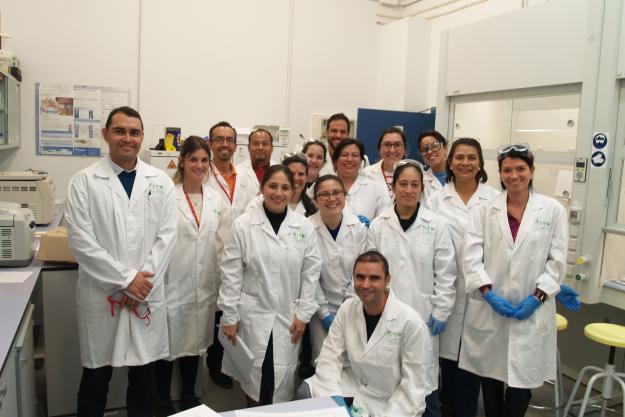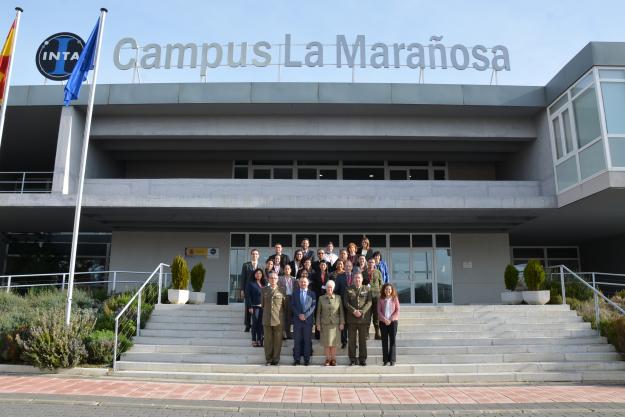
Participants at an OPCW LAVEMA analysis of chemistry course
THE HAGUE, Netherlands — 5 December 2018 — Analytical chemists from Latin America and the Caribbean advanced their skills in the analysis of chemicals controlled under the Chemical Weapons Convention (CWC), at a course coordinated by the Organisation for the Prohibition of Chemical Weapons (OPCW) and the Laboratory for the Verification of Chemical Weapons (LAVEMA), held in Madrid, Spain from 22 November – 5 December.
Secretary General of the National Authority of Spain, Ms Nieves Gomez Sainz De Aja, in her opening remarks underlined that, “Spain has always devoted considerable efforts to capacity building, organising over 50 events in support of the implementation of the CWC”.
OPCW’s Senior Programme Officer, Mr Sergey Zinoviev, expressed the hope that the training will “bring their laboratories to a level of competence required by the OPCW for the analysis of Convention-related chemicals” and “advance peaceful uses of analytical chemistry, contributing to the achievement of the sustainable development goals”.
During an intensive two-week programme, 15 participants from 11 Latin American and the Caribbean (GRULAC) OPCW Member States mastered theory and practice of advanced analytical techniques, sample preparation and interpretation of the mass spectra of chemicals.
Attendees further learned about the maintenance of laboratory equipment, quality assurance systems in chemical analysis, and opportunities for chemists under OPCW capacity building programmes.
The course, held annually since 2010, was hosted by the Laboratory for the Verification of Chemical Weapons (LAVEMA) of the National Institute of Aerospace Technology (INTA) in Madrid. LAVEMA is a long-term member of the OPCW designated laboratory network.

Participants at an OPCW LAVEMA analysis of chemistry course
Background
As the implementing body for the Chemical Weapons Convention, the OPCW, with its 193 Member States, oversees the global endeavour to permanently eliminate chemical weapons. Since the Convention’s entry into force in 1997, it is the most successful disarmament treaty eliminating an entire class of weapons of mass destruction.
Over 96% of all chemical weapon stockpiles declared by possessor States have been destroyed under OPCW verification. For its extensive efforts in eliminating chemical weapons, the OPCW received the 2013 Nobel Peace Prize.
